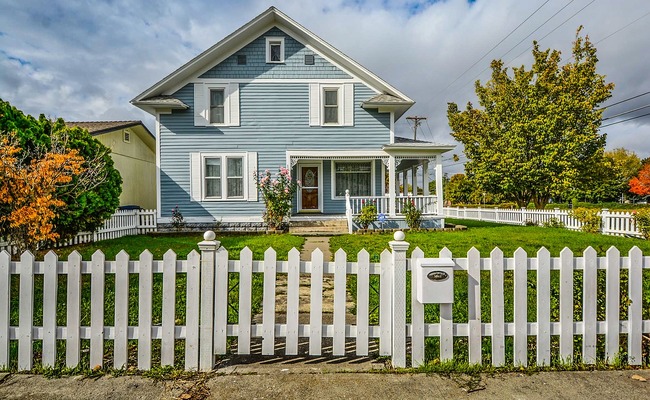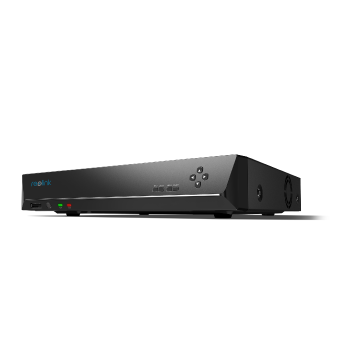Best DIY Home Security System: 2024 Full Guide

Nowadays, you don't need professionals for home security—DIY home security systems with cameras have changed the game. These systems are popular because they're practical and affordable, and you can install them yourself. In this blog, we'll show you easy-to-install DIY home security systems that work great, explaining why people prefer them to keep their homes safe.
What Are DIY Home Security Systems?
DIY home security systems diverge from traditional setups that necessitate professional installation. These systems feature components that safeguard your home and prioritize a user-friendly, do-it-yourself setup. Typically wireless, they emphasize simplicity in installation and often include a smartphone app for convenient access. The DIY method empowers you to choose components like camera types, motion sensors, and smart locks without needing professional assistance.
While professional monitoring services are an option, many DIY systems allow self-monitoring to bypass monthly fees.
Best DIY Home Security System 2024
If you're looking to boost your home security with a DIY approach, there are several top-notch systems with integrated cameras that provide peace of mind. For this roundup, our top pick is the Reolink Home Hub Kit. Featuring battery-powered cameras and easy DIY options, this central device is perfect for beginners. Most importantly. it requires no monthly fees for any advanced features.
Best DIY Home Security Camera System
Suppose you're on the lookout for a top-tier central hub for indoor/outdoor security camera or a DIY security system. In that case, the Reolink Home Hub stands out as an exceptional choice. The Home Hub is compatible with almost all Reolink battery-powered cameras and supports up to 8 cameras.
With an included 64GB microSD card and expandable up to 2×512GB with two microSD card slots, this central devices ofers great storage flexibility. Compared to Cloud storage, this hub keeps your home security recordings and privacy fully protected locally at no potential risk or additional cost. You can manage and add compatible cameras all by your self and don't need to worry about the installation.
Wireless Security Center with Encrypted Local Storage and Multi-Device Management
64GB microSD Card Included; Exclusive Anti-Theft Algorithms; Expandable System Up to 8 Reolink Cams; No Monthly Fees
Best DIY Home Security System with Outdoor Cameras
For an advanced and more professional DIY system, Reolink NVRs are an excellent choice. You can connect various PoE cameras to the device, making it ideal for outdoor use. There are options for both 8-channel and 16-channel NVRs. The pre-installed hard drives ensure all footage can be stored locally, and you can set up different recording modes based on your needs without worrying about storage space. In addition to outdoor security cameras, you can also connect IoT devices like the Reolink Floodlight to the NVR.
16-Channel PoE Security NVR
3TB Built-in HDD; Work with All Reolink 5MP/4MP Cameras for 24/7 Video Recording, Monitoring, and Management; Plug and Play.
Other Best Home DIY Security System
- Ring security system: The Ring Alarm starter kit is priced at $249.99, making it a budget-friendly wireless home security system. Ring provides various equipment packages and a range of outdoor cameras and lights to ensure your home and backyard stay well-lit and secure. Additionally, Ring offers more options for smart doorbells.
- Abode: Abode stands out as the top DIY smart home security system. It works seamlessly with major platforms like Amazon Alexa, Google Assistant, Apple HomeKit, Z-Wave, and Zigbee. Going beyond standard smart home connections, Abode offers custom automation through its CUE service upgrade. Setting these up is a breeze (except for using the mobile app), allowing your system to operate automatically based on factors like time of day, location, and sensor detections.
- Frontpoint: Frontpoint DIY security system provides an enhanced experience through easy setup, reliable customer support, and effective equipment. It's a premium option with monitoring starting at $24.99 per month. Frontpoint also offers a three-year warranty on its equipment, along with more smart devices and compatibility with Z-Wave technology.
Components of Home DIY Security Systems
Now, let's explore the essential components needed to create a robust and personalized security setup for your home.
Security cameras
Indoor security cameras discreetly keep tabs on the interior, providing a vigilant perspective on the happenings within your living spaces. Meanwhile, outdoor cameras add an extra layer of protection by surveilling the external areas, deterring potential threats and capturing any suspicious activity.
Wired or wireless is another point you should consider. Wired security cameras offer a stable and reliable connection, requiring a physical power connection usually through a power cable. PoE cameras, a common choice, provide both power and internet connectivity through a single Ethernet cable.
On the other hand, wireless cameras provide flexibility with easy installation and operate without physical cables. They are often battery-powered, and some models use solar energy as a backup, offering an eco-friendly option and reducing the need for frequent battery changes.
Video doorbells
Video doorbells offer live video feeds and remote communication. They let people see who's at the door, boosting both security and convenience. Imagine having a smart device with a camera that connects to your phone—perfect for checking on visitors, making home security high-tech and hassle-free.
Sensors
Door and window sensors let you know if someone opens a door or window, making it easy to keep an eye on and secure entry points from unauthorized access. And Motion sensors monitor larger areas, detecting movement to enhance security by providing an extra layer of surveillance and alerting residents to any unusual activities.
Smart locks
A smart lock is a modern, tech-savvy upgrade to traditional locks. It allows you to control and monitor access to your home using your smartphone or other connected devices. With a smart lock, you can lock or unlock your door remotely, grant access to guests without physical keys, and receive notifications about who is entering or leaving your home.
How to Install DIY Security System?
To install self-installed security systems effectively, start by identifying the optimal location for the control panel. Choose a spot near the main entry door that's close to a power source. You can attach the control panel to the wall using removable double-sided adhesive tape or a small nail. Alternatively, position it on a table or countertop for convenience.
Once the control panel is in place, strategically install door sensors, window alarm sensors, and security cameras throughout your home. Utilize the peel-and-stick method for sensors, allowing for easy repositioning if necessary. For security cameras, mount them in key areas to enhance surveillance.
After placing all the devices, conduct a comprehensive security system test. Refer to the owner's manual for specific testing instructions provided by the security system. Follow the guidelines to ensure the proper functioning of all components, including sensors, detectors, and security cameras.
FAQs
1. Can I make my own home security system?
Absolutely! But remember, the effectiveness of your DIY home security system depends on careful planning, proper device selection, and thorough installation. While it may not offer all the features of professional systems, a well-designed DIY system can enhance your home security significantly.
2. What is the best DIY home security camera system?
Choosing the best DIY home security camera system depends on your specific needs and preferences. Before making a decision, consider factors such as video quality, ease of installation, storage options, compatibility with other smart devices, and whether you prefer a wired or wireless system. Additionally, check for any updates or new releases in the market, as technology evolves rapidly.
3. Is DIY home security worth it?
If you're willing to invest time in research and installation, a DIY home security system can offer a reliable and cost-effective solution for many homeowners.
Conclusion
DIY home security systems with cameras provide an accessible and cost-effective means of safeguarding your home and loved ones. The ability to tailor your security setup, coupled with the ease of installation and monitoring, empowers homeowners to take charge of their safety. As technology advances, the market continues to offer innovative solutions, ensuring that even those on a budget can access reliable surveillance.
If you like this article and find it helpful, share it with your friends. Do you have something to say about DIY home security systems? Make sure you leave a comment below!
Search
Be in the Know
Security insights & offers right into your inbox


